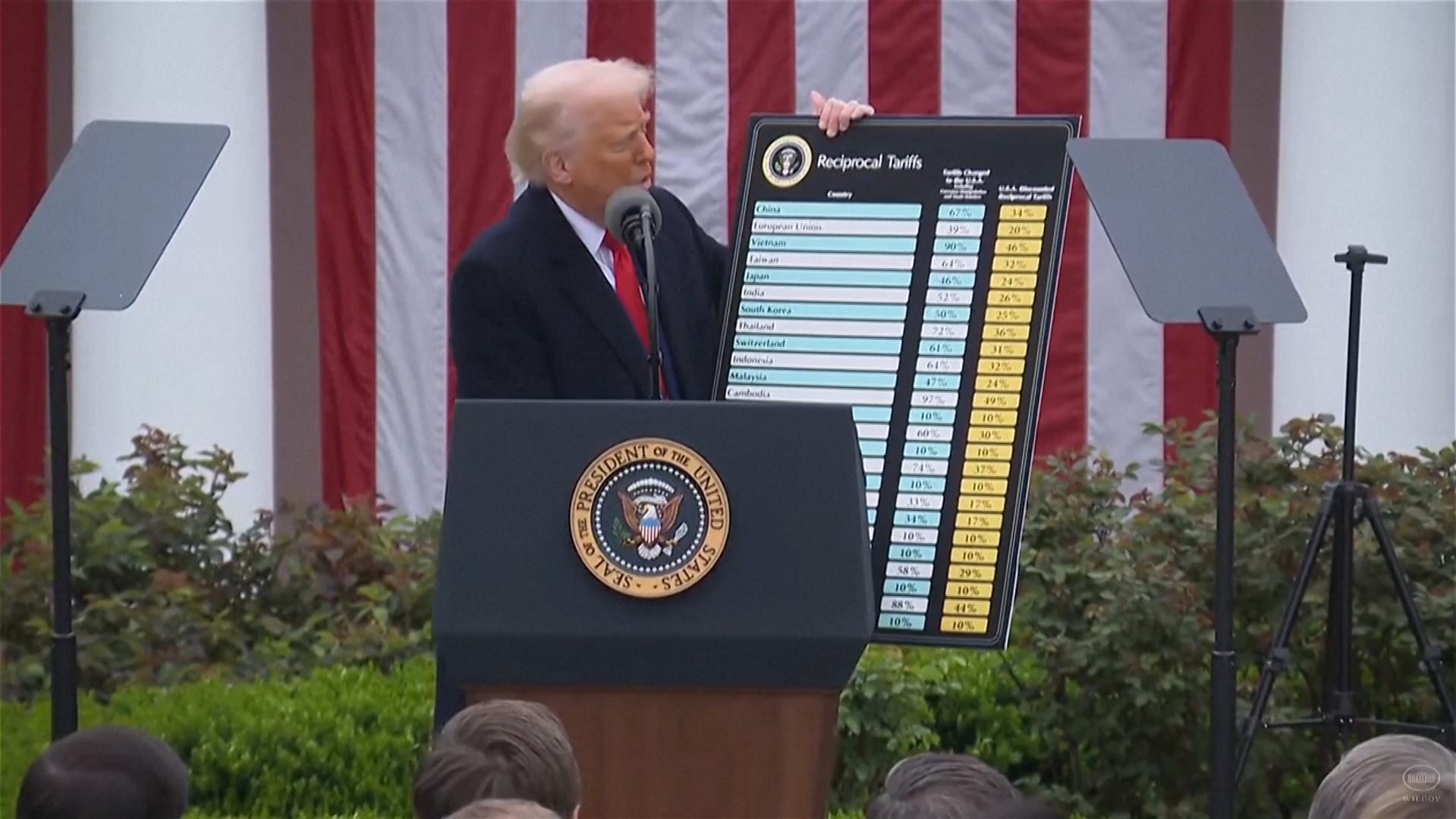Another twist in the handmade pretzel business: Tariffs are raising costs
Trump's tariffs could cost U.S. baking industry $454 million and hurt small businesses like Uncle Jerry's Pretzels in Pennsylvania.

- New tariffs on imported goods like chocolate and packaging are impacting small businesses like Uncle Jerry's Pretzels.
- Small businesses are particularly vulnerable to tariffs, potentially facing reduced profitability or downsizing.
- The baking industry as a whole is expected to be significantly impacted by the tariffs.
Misty Skolnick is troubled about what President Donald Trump's tariffs will mean for her small family-owned pretzel business.
During the economic downturn caused by the COVID-19 pandemic, Uncle Jerry's Pretzels already had to discontinue a 30-year staple – a whole wheat low-salt sesame seed pretzel ‒ and the customer favorite "everything pretzel" when the spice mix became too expensive.
Now, tariffs on chocolate, packaging and labeling are forcing Skolnick to rethink the pricing on their remaining handmade Dutch-style pretzels.
“The domino effect could be harmful to us and our partners and our partners' partners. The uncertainty is difficult right now,” an emotional Skolnick, 44, said.
The tight-knit business she co-owns in Lancaster County, Pennsylvania, has about 30 employees, most of whom carefully handmake and package the pretzels, which sell online and at independent stores coast to coast.
"My dad is 72. He’s worked incredibly hard, and this business is in our blood," Skolnick said about her co-owner and father, Jerry, who started the business in 1988. "We’re asking ourselves, 'Can we afford to provide a consistent, high-quality product at a reasonable price for our customers?'"
Suppliers and larger industry will be hit, too
The tariffs, which kick in Wednesday, will also affect the local, family-run businesses that supply Uncle Jerry's imported chocolate, which covers their popular hand-crafted sourdough pretzels, and their delivery boxes.
The larger baking industry will be hit, too. Country-specific tariffs, including those on Mexican, Canadian and Chinese imports, are estimated to cost the U.S. baking industry $454 million this year, according to the nonprofit American Bakers Association.
The association predicts the increased burden will come mainly from higher ingredient costs and expected supply chain disruptions. For example, bakers imported $679 million in goods from Mexico in 2024, including $96 million in ingredients, $56 million in equipment and about $17 million in packaging.
A 25% tariff on Mexican imports will cost the industry $170 million, the trade association found.
"The American baking industry encompasses a range of commercial manufacturing and retail businesses, many family-owned,” the association said in a statement to Paste BN. “We recognize the Administration’s dedication to strengthening American businesses and manufacturing.”
Small businesses are particularly vulnerable
Small business owners like Uncle Jerry's will be hard-hit by the tariffs, said Andrew Siciliano, head of Global Trade and Customs at accounting firm KPMG. “They may face challenges in managing costs and maintaining competitive pricing due to the tariffs.”
"Higher import prices may lead to reduced profitability or the need to reduce the size of the business," Siciliano added, calling tariff uncertainty "the new normal right now."
While larger companies will likely be able to absorb the increased costs, smaller companies like Uncle Jerry’s don't have much cushion.
Small businesses, which employ nearly 50% of Americans working in the private sector and account for 40% of the nation’s Gross Domestic Product, will be hit especially hard by the economic uncertainty, said Ben Johnston, chief operating officer of Kapitus, a small business lender and marketplace.
Skonick said she's trying to hold off raising pretzel prices as long as she can. Sales in January and February were up 35% compared to those months a year ago. And the company's gross earnings in recent years have reached between $1.5 million and $2 million a year.
That's a long way from when her father sold pretzel bags door-to-door nearly four decades ago.
'Should we be stockpiling inventory?'
But she's not sure how to manage the current uncertain business climate.
"Should we be stockpiling goods and holding inventory, because we bake daily and ship out our fresh products right away?" Skolnick said. "Is this something we should be considering if prices go up. Can we lock in price agreements with our suppliers? Is it even possible?"
Uncle Jerry's has had to raise prices before. In October, they had to increase the price of a package of 12 fist-sized chocolate-covered pretzels from $18.99 to $22.99. Skolnick thought the price hike was fair, considering cocoa prices have risen to historic levels.
"We're okay for this season, but next year, we don't know," Skolnick said. "We'll see how much we can absorb. We operate on very thin margins. It's as simple as that."
Getting rid of the nearly 20 other pretzel varieties is not in the cards ‒ yet. "It would be an absolute last resort,” Skolnick said.
"We try not to panic or react to rumors or hearsay. Ultimately, we’re trying to wait for the facts on the ground before we implement any big changes on our end," Skolnick said. Her father taught her not to over-react, but to wait and see.
"Because if you react to every little thing, it shows some instability and your customers will see that and won’t like it," Skolnick concluded. "It’s not good for business."